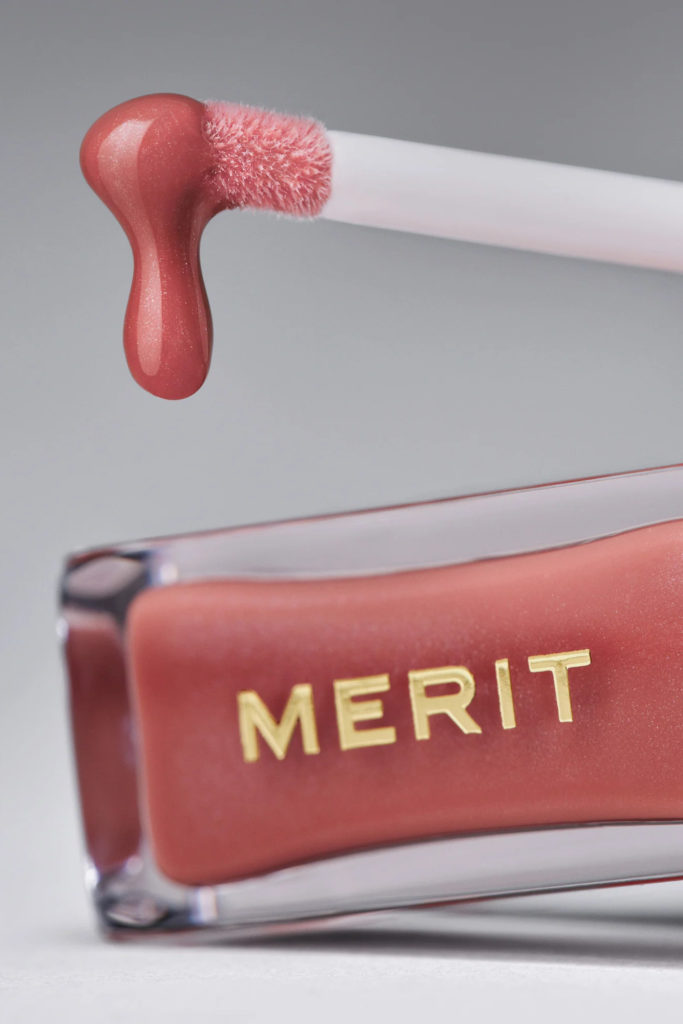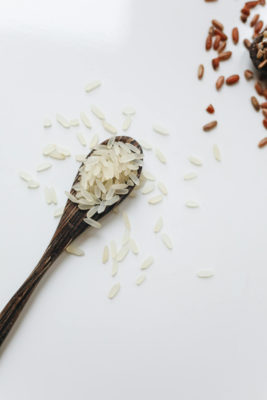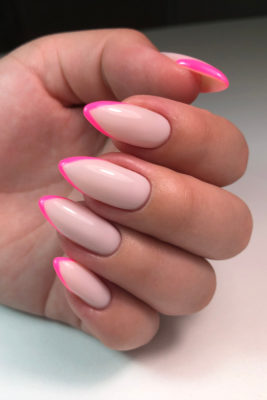
London Has Been Named The Worst Area To Live For Skin Health – And We Believe It
By
8 months ago
Are we really that surprised?
It’s official: London has been crowned the worst area in the UK for skin health. For those who reside in the big smoke, this news doesn’t come as a surprise – if anything, it just makes sense – and instead are turning their attention to how to fend off pollution-induced breakouts. Keen to fend off unwanted breakouts in the capital? Here’s how.
London Skin Health: The Lowdown
The news comes courtesy of Mira Showers, who recently revealed in a report that London (specifically South London, although North and West follow close behind) is officially the worst area to live for overall skin and hair health.
According to the report, South London has approximately 1,000 percent more magnesium in its water supply than the average across England, making it a hotspot for harsh-impact hard water (water that has higher amounts of minerals, like magnesium). One of the top causes of irritated skin, hard water reacts with natural oils on the surface of the skin to ultimately clog pores and cause breakouts.
@belleperez_ What the actual world is happening to my skin #london ♬ Lost Me – Giveon
‘Water is essential in skincare routines for cleansing, hydrating, and maintaining overall skin health,’ says Dr Sonia Khorana, a dermatology expert, GP and Hero Cosmetics Ambassador. ‘It helps to remove dirt, oil, and impurities from the skin, which prevents clogged pores and breakouts. Good quality water supports the skin’s natural barrier, keeping it hydrated and preventing dryness and irritation.’
So, bad news Londoners: your skin will be going through it long before you step out the front door. ‘However, what many people might not consider is how the quality of their water could be impacting the skin, giving rise to various skin concerns,’ emphasises Dr Khorana. ‘Poor water quality with contaminants and impurities in the water can irritate the skin, cause dryness, and exacerbate conditions like eczema and acne. Water quality can also have the ability to alter the skin’s pH balance, making it more susceptible to infections and inflammation. So, where you live will certainly make a difference on your skin health.’
How Does Hard Water Impact Our Skin?
As mentioned, hard water contains high levels of magnesium – a mineral that can have a pretty adverse affect on our skin health. ‘It can ultimately have an impact on the skin when hard water is an inevitable part of your daily routine,’ confirms Dr Khorana. ‘Magnesium, along with calcium, can make it difficult for water to lather with soap, leading to residue left on the skin. This residue can clog pores, cause dryness, and irritate the skin, which can over time lead to blemish-prone skin, sensitivity and eczema-prone skin.’
Dr Khorana goes into detail on some of these issues below:
- Dryness & Irritation: The minerals can strip the skin of its natural oils, leading to dryness and irritation.
- Clogged Pores: Mineral residue can clog pores, causing blackheads and acne flare-ups.
- Exacerbation of Skin Conditions: Conditions like eczema and psoriasis can worsen with the use of hard water.
- pH Imbalance: Hard water can disrupt the natural pH balance of the skin, making it more prone to inflammation.
@shitskinchat When I first moved to London the hard water literally destroyed my hair and skin and with a LOT of trial and error with diffefent products and routines, I think i’ve cracked it. #hardwater #london #acne #haircare #kiwisinlondon ♬ original sound – SAKURA | 青木さくら
Is It Just The Water?
While hard water is one of the main aggressors when it comes to worsening skin health in London, there are plenty of other factors to also consider. ‘Living in cities can certainly expose us to what feels like inevitable issues when it comes to our skin health,’ says Dr Khorana. ‘Several factors specific to urban environments like London can contribute to skin issues, including:
- Pollution: High levels of air pollution can lead to oxidative stress on the skin, causing premature aging, inflammation, and breakouts.
- Climate: The often cold and damp weather can strip the skin of moisture, leading to dryness and sensitivity.
- Stress: The fast-paced lifestyle and high stress levels that come with city living can negatively impact skin health, causing issues like acne and dermatitis.
- Diet: London comes with its glorious options of food and drinking options. Not to mention, the city lifestyle can be one which favours late nights, less healthy food choices and drinking alcohol. With poor dietary habits comes a potential impact on the skin, with a diet high in processed foods and alcohol consumption can lead to dull, unhealthy skin.
- Environment: Indoor heating, and even the blue light from our devices can wreak havoc on our skin.’
How Londoners Can Improve Their Skin Health
Countryside escape off the cards? Don’t worry. ‘While it may seem like escaping to the rural British countryside often might feel like the only option to avoid environmental skin concerns, Londoners can adjust their skincare routines to mitigate the effects of poor water quality,’ reassures Dr Khorana. Below, she outlines some of the things we can start doing at home:
- Gentle Cleansing: Look to invest in a gentle, pH-balanced cleanser to be used daily to remove impurities which avoids stripping the skin.
- Hydrating Skincare: Skin hydration is key when it comes to your daily skincare routine to stay equipped against the pollutants within the city environment. Opt for a good moisturiser which contains ceramides and hyaluronic acid.
- Protect Your Skin: It is important to use products that counteract these external aggressors – products with antioxidants will help protect against environmental aggressors. Using daily sunscreen with added blue light protection, visible light protection and infrared protection will also help.
- Using Filtered Water: Consider using filtered water for cleansing the face to reduce exposure to harsh minerals. Shower filters are now becoming a popular solution for Londoners to reduce contact with hard water.
- Barrier Repair Products: Use products that help repair and maintain the skin’s barrier function.
- Look After Sensitive Skin: For sensitive skin types, use fragrance-free cleansers and lotions.
‘Beyond adjusting your skincare routine to complement your environment, it’s important to maintain overall skin health through lifestyle choices,’ she adds. ‘Stay hydrates and employ a healthy diet. Eat a balanced diet rich in fruits, vegetables, and healthy fats to provide the skin with essential nutrients. You also always use sunscreen to protect the skin from UV damage, even on cloudy days and throughout winter months. And finally, look to manage stress – a big cause of skin issues – by practicing yoga, meditation or regular exercise.’
Featured image: Luke Stackpoole, Unsplash









